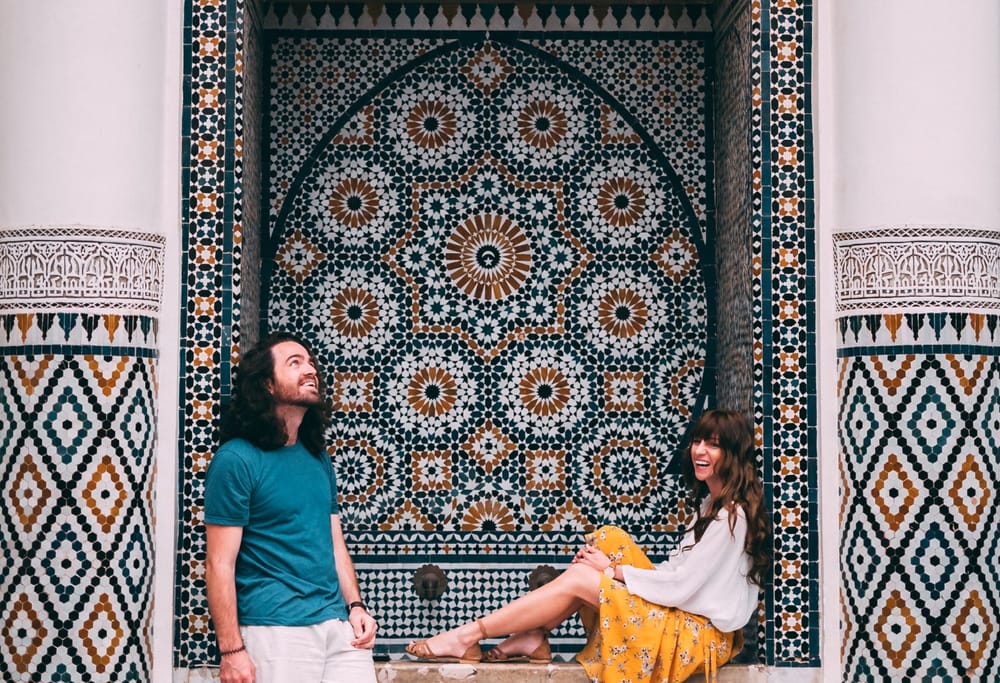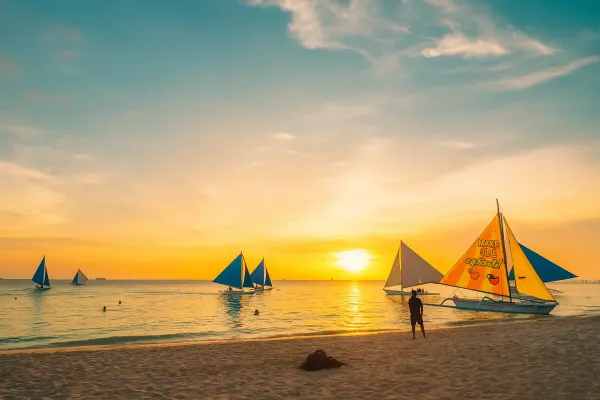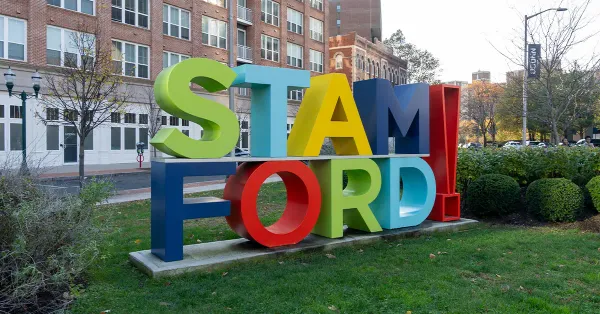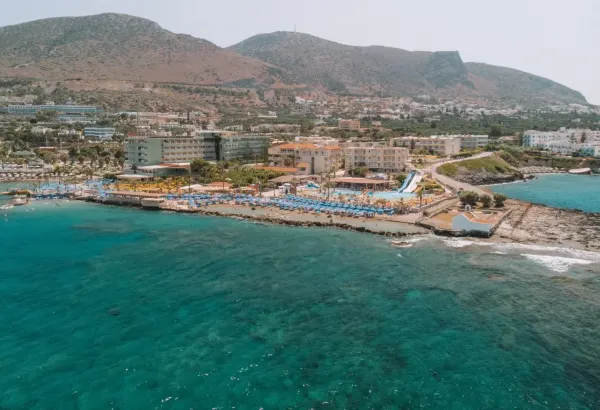Visiting Morocco During Ramadan: How To Have A Wonderful Experience
Are you planning a trip for Ramadan in Morocco and wondering if it is a great idea since you are unsure if you will be required to fast?
While your concerns are legitimate, there are many reasons to stick to your travel plans, and there is no need to be in a hurry to adjust them. A key thing to remember is that Morocco transforms into a completely different place during Ramadan. Contrary to popular belief, during Ramadan, Moroccan tourism and the country's legendary hospitality only thrive. With the appropriate and necessary information, you can expect to have an equally wonderful experience if you visit Morocco at some other time of the year.
Traveling to Morocco in Ramadan
Traveling during Ramadan to Morocco will give you a unique perspective on the country's rich culture. Many non-Muslims are unfamiliar even with the word "Ramadan," not to mention many aspects that are associated with it. However, we should remember that for Muslims and Muslim countries (which includes Morocco), it’s an important time of year.
What Is Ramadan?
Ramadan is the ninth month of the Muslim calendar and is regarded as the holy month by all Muslims worldwide. Fasting during this period and in general is considered one of the most important practices by Muslims. Thus it shouldn’t be treated lightly by outsiders or foreigners.
During Ramadan, the Qur'an mandates Muslims to consume no food or drink from dawn until dusk, which includes fruit and water. Relatives and friends gather to share a meal before commencing another day of fasting after sundown. Most Moroccans fast from roughly 3:30 am until 8 pm (the exact times vary depending on the moment of first light, or "break of dawn," and the sunset). Children, pregnant or nursing women, and those with medical conditions are all excused from fasting throughout Ramadan but are urged to make up for their missed time afterward.
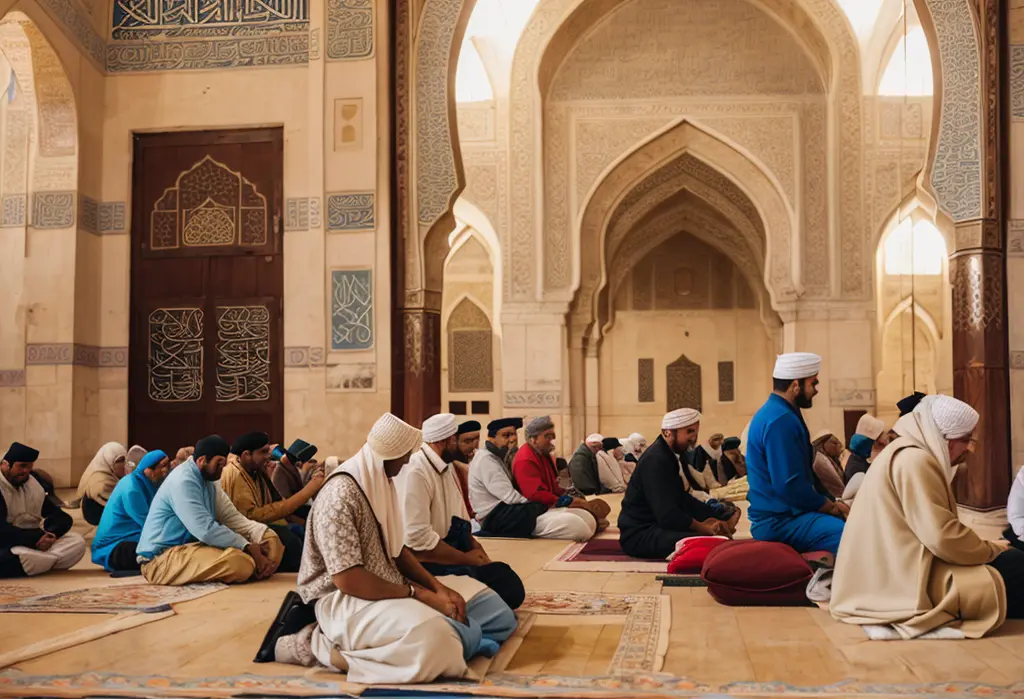
Besides refraining from eating and drinking, Muslims resist taking part in sinful or filthy activities, scouring their behavior, and only doing good. They also abstain from smoking, gossiping, and cursing. Tourists ask questions like "Can you say I love you during Ramadan?" or "Can you drink alcohol in Morocco during Ramadan and at other times?". Yes, you can if you are not a Muslim and you aren’t doing that in public.
Ramadan is a period for Muslims to reflect on their blessings and raise awareness of those who are in need. Muslims strive to be charitable throughout this month since their fast helps them to keep in mind those who are less fortunate. Ramadan is also a time for purification of not just the body but also the soul.
The holy month of Ramadan concludes with a three-day Eid festival, marked by great food and merriment known as Eid el-Fitr.
When Is Ramadan?
Ramadan is closely tied to the Islamic Hijri calendar, also known as the lunar calendar. As said, it is the ninth lunar month, when the first crescent of a new moon appears, and it happens to be the month when Ramadan officially begins. Because of this, the first day of Ramadan changes every year.
Ramadan concludes on the date when the crescent of a new moon becomes visible in the tenth month. This sometimes happens on the 29th day of Ramadan and sometimes on the 30th. If there are clouds and you can’t see the crescent moon, Ramadan will last 30 days.
Many countries declare the start and finish days of Ramadan using a predefined calculation provided by Saudi Arabia (all determinations are based on Saudi Arabia). However, nations like Morocco base their decision on the start and end dates of Ramadan solely on the physical observations of the moon.
Should You Fast If You Are a Foreigner?
During Ramadan, Moroccans are prohibited from consuming food or beverages in public unless they are exempt from the fasting requirement under predefined conditions (such as illness or pregnancy). Foreign visitors and non-Muslims are exempt from these prohibitions. However, you should not eat or drink in public. There are no Ramadan rules for tourists, but it is a sign of courtesy and a means of showing respect for Moroccan culture and religion.
Final thought: If you are a foreigner and a non-Muslim and choose not to eat throughout Ramadan, you need not worry.
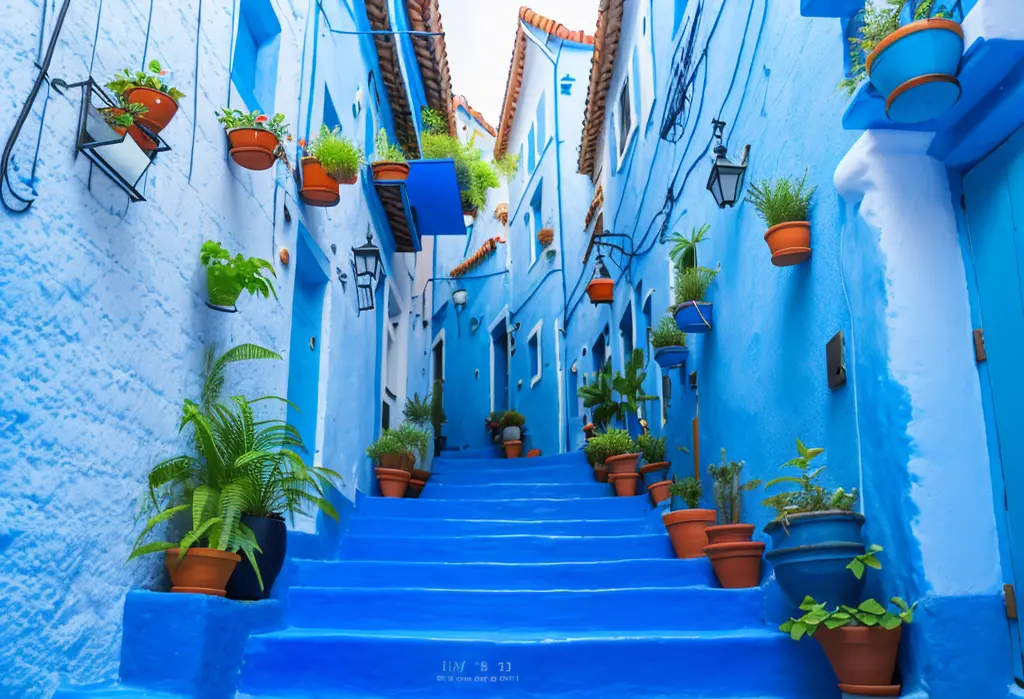
However, it’s important to remember that fasting for 30 days from sunrise to sunset is not impossible; almost ⅓ of the world does that every year. Your body will adjust, and you will enjoy the benefits after a few days.
Fasting could also be viewed as a means to improve self-discipline, which can, in turn, positively affect other aspects of your life, whether personal, spiritual, or professional. In addition, it has some health benefits, including controlling blood sugar levels and reducing body fat. It can also help cultivate a sense of gratitude for the little things in life that we take for granted.
What Is Morocco Like During Ramadan for Travelers?
Because the month is exceptional for the Moroccans, it is difficult not to be swept up in the infectious excitement, even if Ramadan in Morocco may pose some difficulties to visitors. Visiting Morocco during Ramadan has its pros and cons, but one outweighs the other.
Pros of Being in Morocco During Ramadan:
✅ Would you believe it or not, Ramadan is a good time to showcase and sample the best Moroccan and international cuisine. All because if you fast for more than 12 hours, you start to value your dinner (after sunset) even more, and would want to get the most out of it. As such, Ramadan is undoubtedly one of the greatest seasons to visit Morocco if you love food. You will most likely get to eat some Ramadan delicacies uniquely found during this period, like Harira, stuffed dates, and Chebakia. And street food vendors thrive during the night.
✅ Ramadan is often off-season for most tourists, so most of the sites you visit or stay at will be less congested. So tourist attractions are more available and lack tourist groups congesting the view.
✅ An opportunity to immerse yourself in Moroccan culture during Ramadan may be just what you are looking for if you enjoy discovering new people, places, and ideas. As a result, you are more likely to learn about local culture and religion than at any other time of year.
✅ Strange as it sounds but there are fun things to do in Ramadan in Morocco. The youth who spend their days fasting and contemplating on spiritual aspects of their lives, tend to spend their night in bliss and fun. So you may find yourself immersed in fun and parties during Ramadan in Morocco.
Cons of Being in Morocco During Ramadan:
❌ Morroco's Ramadan limits access to traditional local restaurants during the day. Your dining options will be limited especially if you choose to travel to smaller cities and villages. Your only option will be to settle for tourist-oriented eateries with less authentic and almost certainly more expensive food.
❌ Another thing to consider is that fasting can make a friendly person grumpy, especially later in the day. As a result, you may encounter a Moroccan or two who act in less commendable behavior.
❌ Though it’s not prohibited for foreigners, finding alcoholic beverages outside of premium pubs and restaurants could be challenging. For a few weeks before and during Ramadan, sales of alcohol are prohibited for locals. If you ask if you can drink alcohol during Ramadan after Sunset? The answer is, yes, but don't expect it to be cheap and readily available.
Is Morocco Worth Visiting During Ramadan?
It all depends on your expectations. The first thing to remember is that Moroccans will still be warm and welcoming hosts, and all the tourist attractions will still be available for visits.
Yes, the day life will be a little sluggish as Moroccan Muslims prefer to stay at home during daylight hours to sleep and spend time with loved ones. However, with the final call to prayer, the cities spring to life!
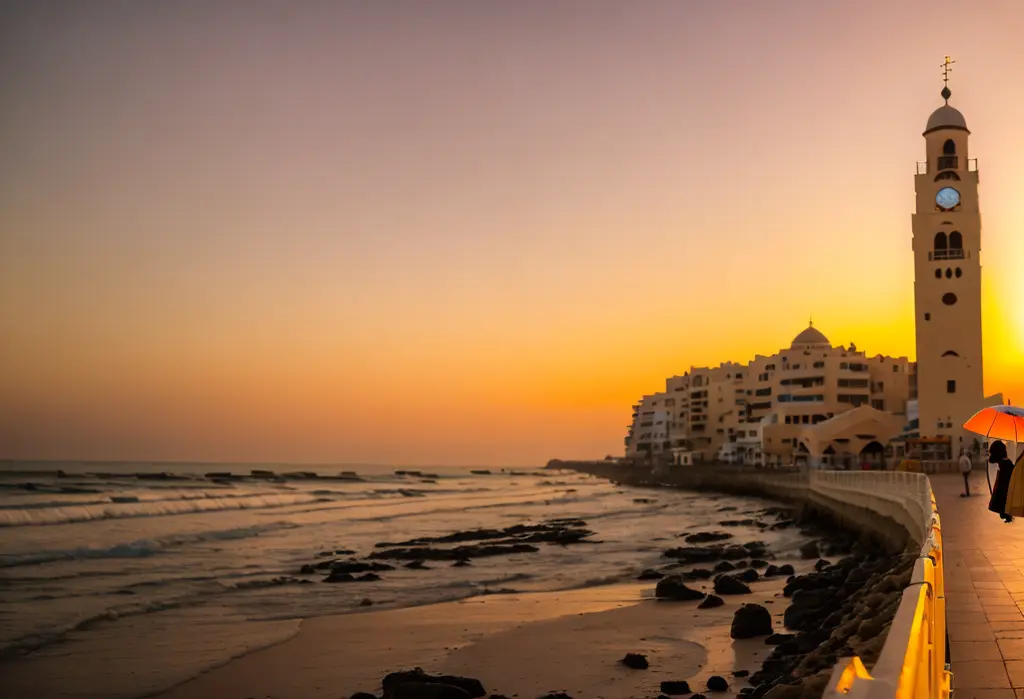
Ramadan may not be the best time of year to visit if you plan to go partying and shopping. However, if you are looking for a truly unique cultural experience and are open to going along with the flow, then might be the perfect fit.
Also, if you want to experience immersion into an ancient and deep culture with thousands of years of history, in a country influenced and marked by many great civilizations, being in Morocco during Ramadan is what you need. Experiencing this sacred month in a Muslim context will make you appreciate the people and their dedication to their religion.
How Do Moroccans Greet Each Other During Ramadan?
During the holy month of Ramadan, Moroccans will uniquely greet one another. They greet one another with the phrase "Ramadan Mubarak," which translates as either "Have a good Ramadan" or "Happy Ramadan." The typical response is "Ramadan Kareem," which translates as "Have a generous Ramadan."
Working Hours During Ramadan in Morocco
Since Morocco’s population is predominantly Muslim, businesses must adjust their working hours during Ramadan as they do for other national holidays. For the whole month of Ramadan, Morocco clocks back its time by one hour, to -1 GMT. Many establishments close their doors as soon as the sun sets. The purpose of this is to allow individuals to eat and pray at the same time.
Many restaurants and food stores remain open from past 9 pm on weekdays and into the early hours of the morning. Museums and historical treasures, for example, could reduce their working hours of operation. These are things to note while you make your plans.
What Happens after Ramadan in Morocco?
The days following Ramadan are significant for Muslims because they mark the completion of the fast. It is known as Eid al-Fitr. You will often find Muslims offering group prayers and donating to the needy. Families typically celebrate Eid al-Fitr by visiting and spending most of the day with relatives and loved ones.
After Morocco Ramadan, during Eid al-Fitr, most families' main dish is Tagine, which includes bread, fresh fruits, and delicious Moroccan tea. Another typical dish is chicken with lemon juice and olives.
You can have the best of your trip to Morocco whether you are traveling during Ramadan or other months. It's up to you to decide based on what you want.
Useful Tips about Ramadan in Morocco
Here are some useful tips that will come in handy during your stay in Morocco during Ramadan:
💡 Make sure to drink plenty of water during the day, as it can get quite hot.
💡 While non-Muslims are not required to fast, it is considered courteous to refrain from eating or drinking in public areas during the day.
💡 Be prepared for large crowds at mosques during prayer times. If you're not Muslim, it's best to respect the sanctity of these spaces and not enter unless you're invited.
💡 It is important to dress modestly and avoid loud or offensive behavior.
💡 Be prepared for a lot of socializing, as this is a time when families and friends get together.
💡 Make sure to say “ Ramadan Mubarak” to anyone you meet who is also celebrating the holiday.
Conclusion
Ramadan is a great time to travel to Morocco whether or not you are Muslim. The country remains as beautiful and fascinating as always. So, if you're looking for accommodations, Karta offers amazing deals on Morocco vacation rentals for you!


